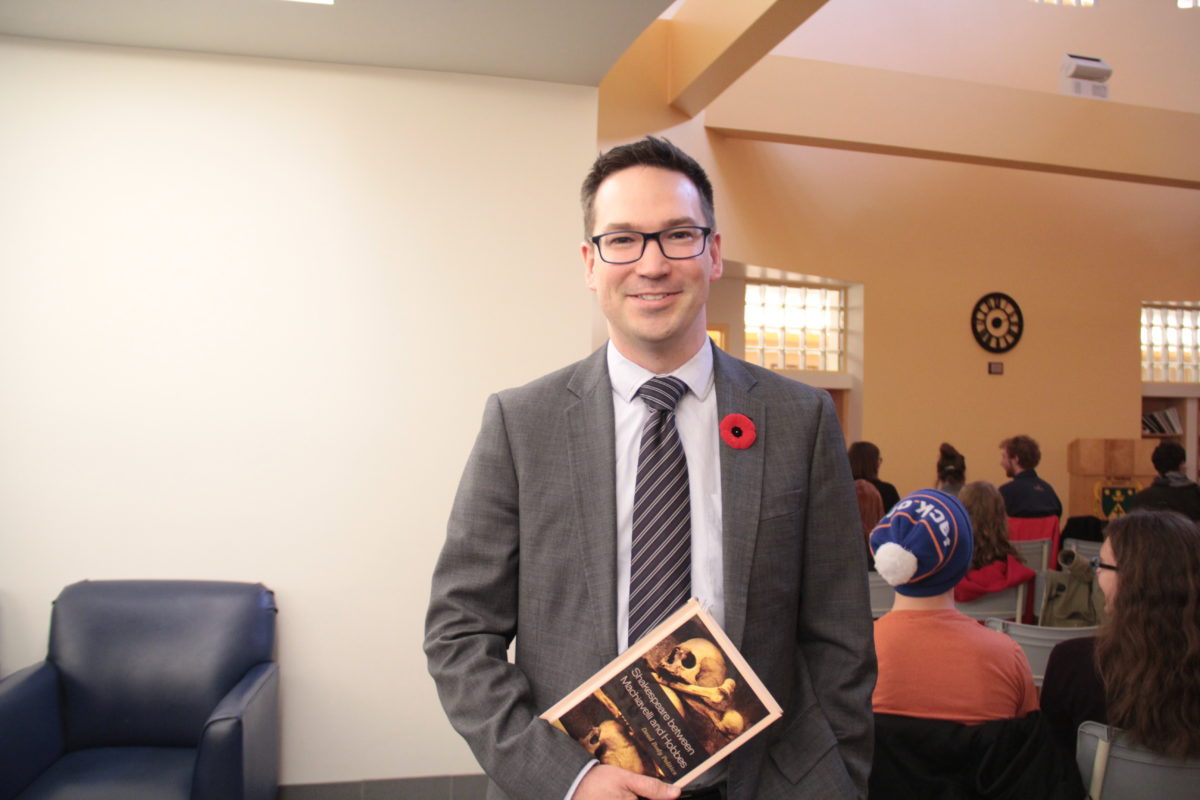Dedicating a book about Shakespeare, Machiavelli, Hobbes and dead body politics to your wife might not be the most romantic thing in the world, but for professor Andrew Moore, it was necessary.
A book launch was held Friday, Nov. 4 to celebrate the launch of St. Thomas University professor Andrew Moore’s book, Shakespeare between Machiavelli and Hobbes: Dead Body Politics.
The book is the product of five years’ work, and something Moore said would not have been possible without the support of his colleagues, students and his family.
Moore describes his book as “a STU book.”
“It’s a book that only exists because of St. Thomas, and the primary reason is because of the Great Books program … it has been made possible by the kinds of questions and the kinds of investigations we can undertake there,” Moore said.
“Everything I’ve ever thought about Shakespeare has been challenged by my students.”
Moore said the central question of the book is whether we can figure out what Shakespeare thinks about politics.
“The big takeaway point is that Shakespeare shares a lot of our modern preoccupations about how do we reconcile morality and politics, what is the relationship between violence and politics … Shakespeare is much more about questions than he is about answers,” he said.
Moore said his tactic in pursuing those answers is identifying and focusing on things Shakespeare himself seemed interested in.
“Like, can we reconcile church and state, or if the law is based on contract, is there anything we shouldn’t do because it’s morally wrong?”
Hannah Zamora, a third-year student, said Moore was the person who cemented her decision to go to STU by pitching the Great Books program.
“[The Aquinas program] does this in general but having great teachers does this, too, where my mind just felt like it was constantly being challenged and mind blown every class. Especially talking about Machiavelli and Hobbes and just offering new perspectives on Shakespeare … [Moore] was really good at expanding horizons and making you really take a step back and think about what you believe in,” Zamora said.
Rachel Slipp, another STU student, worked as one of Moore’s research assistants last year and had a role in the editing and reference checking of the book.
“It was interesting to be able to read the book before it got published, and see some of the ideas that we had talked about and some of the plays we had talked about in Aquinas and Great Books,” Slipp said.
Third-year student Robert Lynn was Moore’s other research assistant. He said the book places Shakespeare as the bridge between the political thought of Machiavelli and Hobbes.
“Dr. Moore does a really great job of writing great ideas in a way that’s super readable to everyone and is poetic and elegant and artful,” said Lynn.

